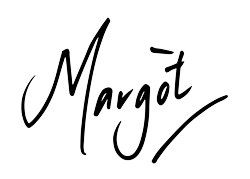“The greatest gap in the world is the gap between knowing and doing” – John Maxwell
These days we seem to know a lot. Not only is there an extraordinary amount of up to date relevant information available on almost any topic we can think of, our access to it has never been easier. Books, blogs, podcasts, training programs, knowledge management systems and devices are everywhere and yet one of the biggest questions for both businesses and individuals alike is ‘Why can’t we get anything done?’
For many of us we simply seem to be drowning in a sea of good intentions. Whether its about implementing a new way of working, recruiting new skills for our team, getting fitter, saving more money or simply slowing down, too many businesses and individuals are finding themselves caught in the gap between knowing what they should do and doing what is actually required.
The reality is knowledge is only useful if we do something with it. Whilst it is very important to develop a strategy, build intellectual capital and remain up to date and aware of new developments, we need to actually DO something. This means tackling the hard work, rolling up our sleeves and getting stuck in. As leaders, this doesn’t mean that you have to do everything but you have to actively engage and play your part. Failing to do so sees us risk both business and career success.
Jeffrey Pfeffer and Robert Sutton, authors of the book The Knowing-Doing Gap: How Smart Companies Turn Knowledge Into Action argue that one of the main barriers to turning knowledge into action is the tendency to equate talking about something with actually doing something. As they note, all too often talk is valued because the quantity and ‘quality’ of it can be easily assessed immediately where as the ability to get things done requires a greater timeframe. The risk therefore is that our impressions of others are based on sounding smart rather than on how they perform.
No doubt many of us have borne witness to this in our own workplaces – Individuals who are able to speak the talk but not walk the walk. The long-term damage is enormous and does nothing than more than erode trust, confidence, engagement and action. The bottom line is no results or benefits are ever achieved or enjoyed simply by talking about something – or by just making a decision to do something. It still needs to be followed with effort to implement.
So how do we build a culture of action for our businesses, teams and ourselves?
Understand the why before the how: As managers and leaders all too often we want to quickly learn the ‘how’ – what do I need to I immediately do/adopt rather than understanding the ‘why’ in terms of drivers and goals. The real danger is when we expect our teams to also adopt this framework of thinking as it can easily create an overly dependent culture that is devoid of learning, independent thinking and ownership.
Commit to taking action: Many of us have fallen into the pattern of researching, planning and refining our strategy as a way of telling ourselves we are busy ‘doing’ when really we are just playing safe. Essentially all we are doing is walking on a treadmill – yes we are moving but it is not actually taking us anywhere.
Simplify: Leaders and organisations that use simple straightforward language, concepts and structures are better at closing the knowing-doing gap. Simplicity removes ambiguity, blame and confusion. It increases productivity, efficiency and creativity. Quite simply it is the fast track to creating action.
Invest in learning: Closing the gap on knowing and doing requires an investment in training and learning be-it for our organisations or ourselves. Developing expert skill-sets, efficiency and confidence requires commercial tolerance, time and a learning based culture or outlook. Recognising that as learners we need space to explore new ideas, make mistakes and embed new knowledge is critical to maximising the ROI on the learning investment.
Face the fear: Fear is one of the greatest paralysers of success and progress. To close the knowing-doing gap we need to face it – both at an individual and organisational level. To take action we need to know that there will be no punishment for taking risks, making mistakes and exploring new ideas without a guarantee of success. If we fear for our jobs, our future opportunities or even for our own self worth we are less likely to move beyond the safe confines of what we know and have done before which ultimately prohibits any form of growth.
Lose the perfectionist tag: Perfectionism is the equivalent of paralysis. Not only does it prohibit us from taking the first step towards action, it also creates unwarranted stress, crushes creativity, prevents productivity and ultimately limits profitability.
Measure the right things: To encourage action we need to ensure that we are measuring the right things. Pouring all of our energies and metrics into scrutinising hours worked rather than levels of customer satisfaction is not going to drive future results. We need to demonstrate and see the value in what we are measuring and how it relates to what we do our future direction and our success.
The real challenge for us is to make knowing and doing the same thing. It is only when we do that we will drive a culture of action for ourselves and the businesses that we lead. As we head into the last quarter of the year I would encourage you to think what it is that you want and need to do to close the year out successfully.
As always I would love to hear your thoughts.


